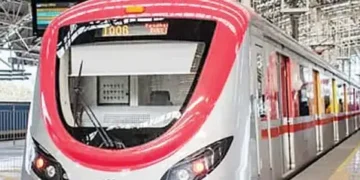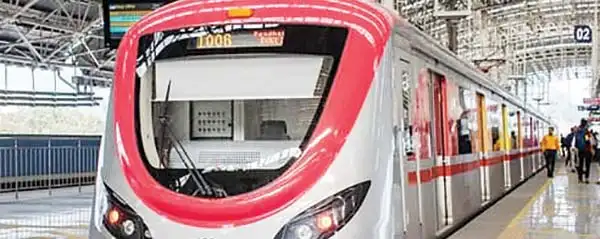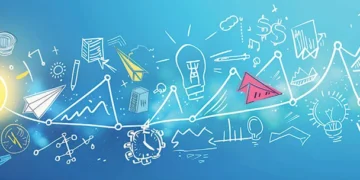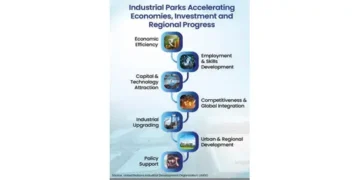Blitz Bureau
NEW DELHI: INDIA’S Metro rail systems are embracing green innovations. The Delhi Metro installed a vertical bi-facial solar plant on an elevated viaduct at Okhla Vihar and a 1 MW rooftop solar plant at Khyber Pass depot, pioneering land-free renewable energy use.
The other green initiatives like regenerative braking systems, widely adopted across Metros, help save power and reduce carbon emissions by converting braking energy into electricity.
Additionally, many Metro stations have received Indian Green Building Council (IGBC) certifications, promoting ecofriendly infrastructure. The Metro systems aren’t just expanding in size, they’re evolving in intelligence. With a strong push toward automation, digitalisation, and sustainability, Metros across the country are embracing new technologies.
Last year, the country achieved a major milestone by launching its first underwater metro tunnel in Kolkata, connecting the Esplanade to Howrah Maidan beneath the Hooghly River.
This engineering marvel stands as a symbol of India’s growing technological and infrastructural prowess. Kochi in Kerala became India’s first city to launch a Water Metro. The Water Metro connects 10 islands using electric-hybrid boats for seamless and eco-friendly transport.
The Metro expansion continues to gather pace with a wave of new projects in the planning and approval stages. The aim is to improve last-mile connectivity, support urban growth, and offer cleaner, faster, and more inclusive public transport across emerging and established cities.
Upcoming projects
Some of these upcoming projects are: Pune Metro Phase-2: Covering two elevated corridors (Vanaz-Chandani Chowk and Ramwadi-Wagholi) totaling 12.75 km with 13 stations, it has been approved and scheduled for completion within four years. The extensions will improve access to IT hubs, educational institutions, and intercity bus terminals, enhancing the public transport share.
Delhi Metro extnesion: Of the AerocityTughlakabad Corridor to Indira Gandhi Domestic Terminal-1 (2.16 km, Underg r o u n d ) . M a g e n t a Line Extension (Line 8) – Ramakrishna Ashram Marg to Indraprastha (9.913 km, Underground). Golden Line Extension (Line 10) – Tughlakabad to Kalindi Kunj (9 km, Elevated). Noida Sector-51 to Knowledge Park V (17.435 km).
Ahmedabad Phase-2A: Extension for direct connectivity to Sardar Vallabhbhai Patel Airport (6.032 km). The extension will lead to convenient and faster access to the airport for commuters, airport personnel, and residents across the city.
Bengaluru Phase-3: A total of 45 km of Phase-3 has been sanctioned by the Central Government at a cost of Rs 15,600 crore. Currently, 75 km of Metro is operational and 145 km is under construction in the city. Water Metro expansion: Replicating the model of Kochi Metro, the Government has approved a technical feasibility study for Water Metro expansion services in 24 cities across India, including Guwahati, Dibrugarh and Tezpur in Assam. The expansion will help in improving connectivity, easing road congestion, and promoting sustainable transit in cities.
New India fabric
From the buzzing platforms of Delhi to the rising lines of Surat and Bhopal, Metros are silently stitching together the fabric of a new India: fast, efficient, and clean. These aren’t just trains; they’re lifelines of tomorrow’s India, delivering not just passengers, but ambition, equity, and resilience.
As India aspires to become the world’s third-largest economy with a projected GDP of $7.3 trillion by 2030, robust public transportation like Metro rail will be the backbone of its growth, connecting people, powering cities, and protecting the planet. With the Government’s continued focus and execution, India is well on track to become one of the world’s leading models of Metro-led mobility transformation.

































